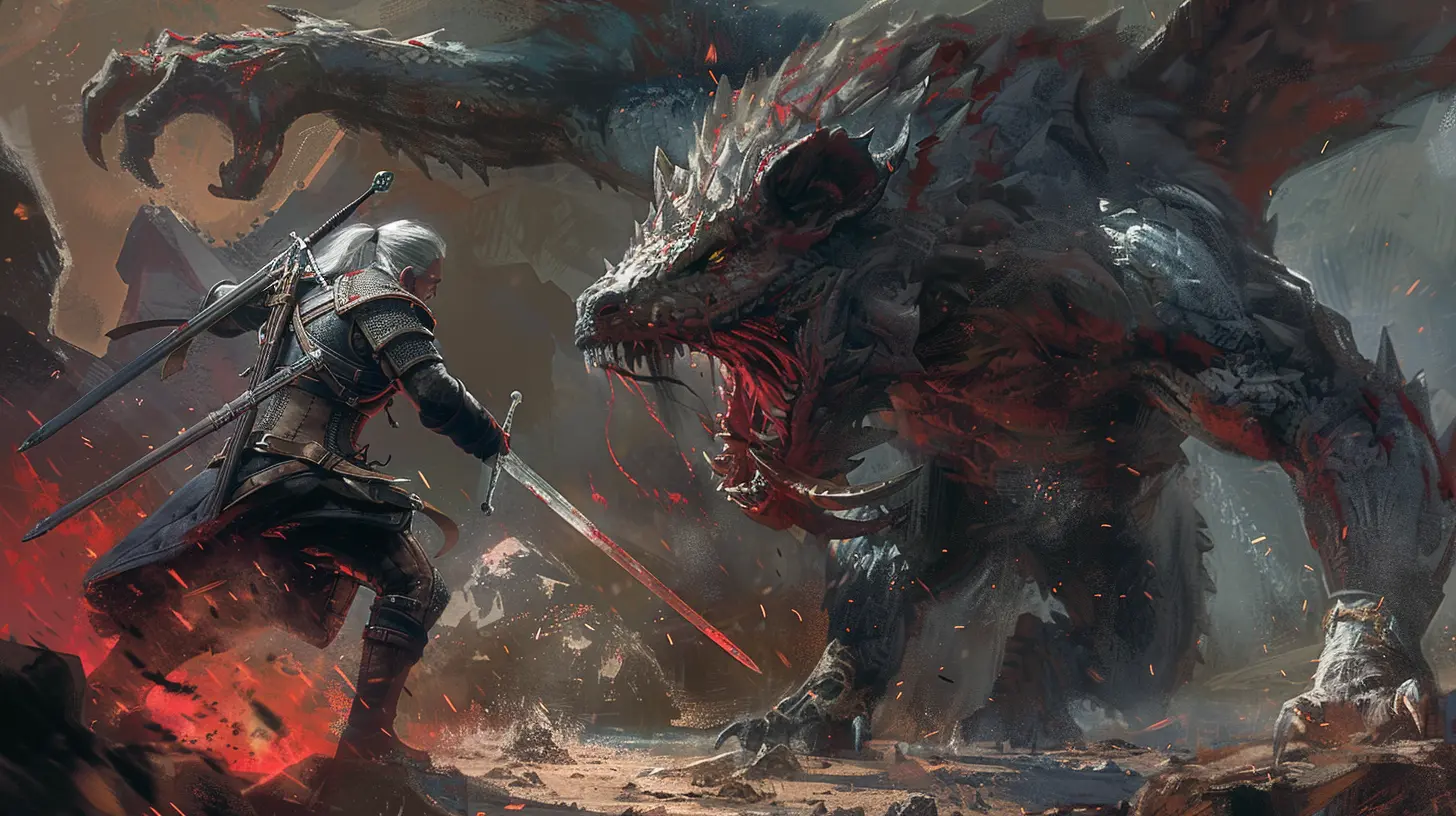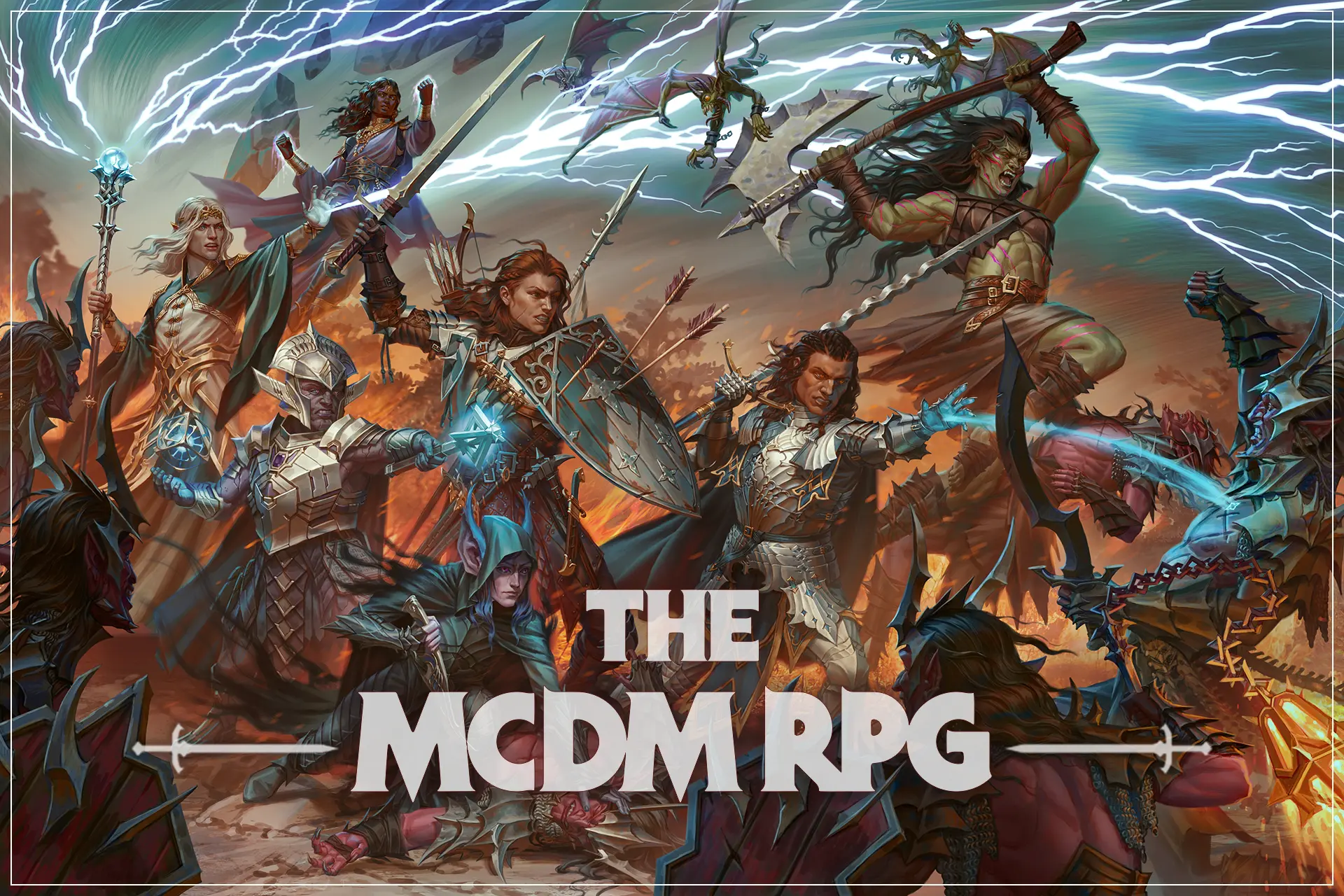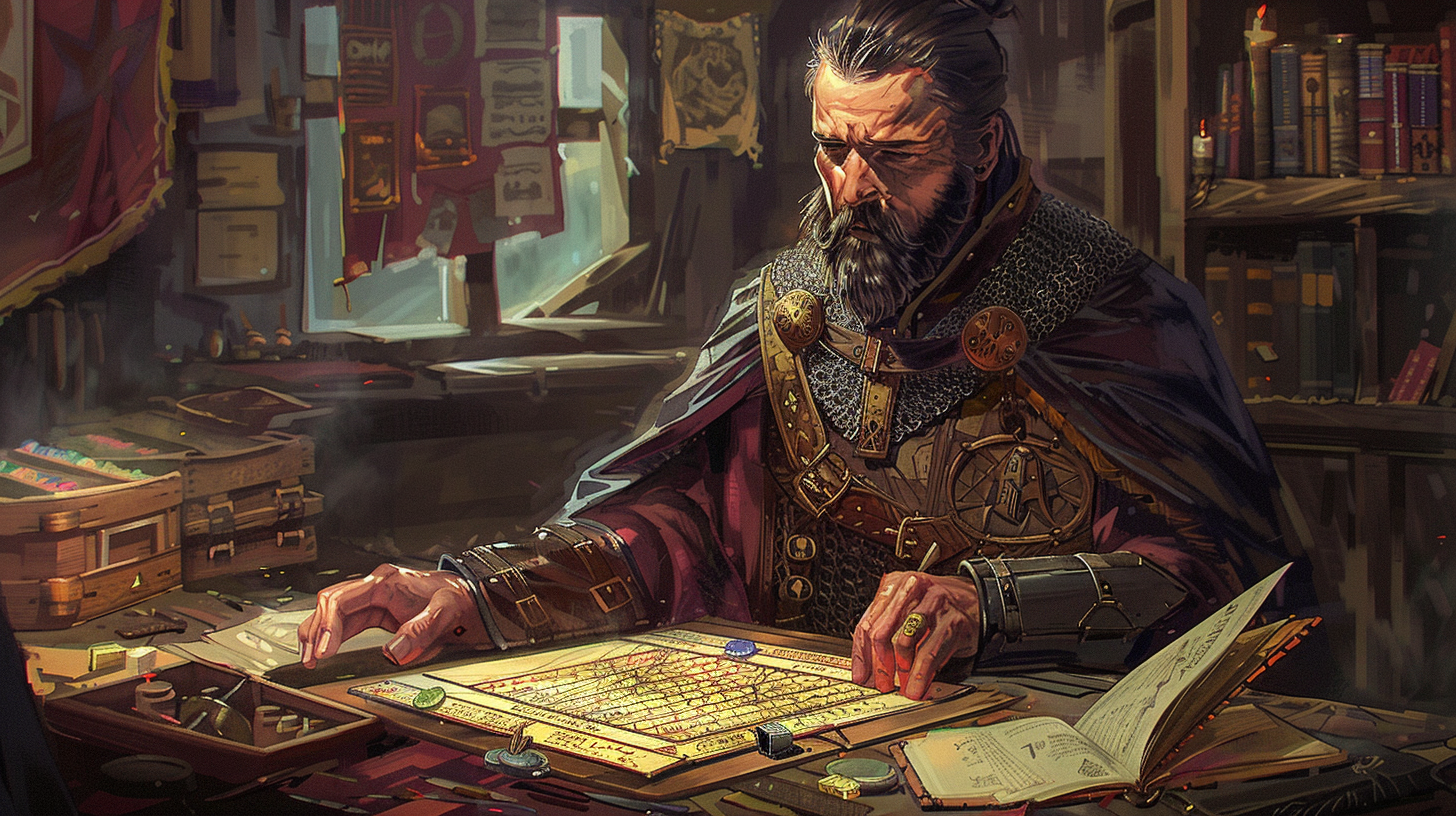
If I had to pick one genre of game as my favorite, it would have to be the epic sci-fi/fantasy adventure, in the form of a party-based RPG. Everything from Baldur’s Gate to Fallout to KotOR to Mass Effect. And while the first two Fallout-games would have to be my favorite games of all time due to the sheer impact and the level of innovation, I have an immensely weak spot for the BioWare RPGs of the 2000s. And that’s largely because of how well the party members are written in those games.
BioWare and its storytelling tropes
The typical BioWare RPG (like KotOR, Jade Empire of Mass Effect) follows a typical adventure story structure: the status quo is established, the main character is introduced, an evil force topples the status quo, and the main character is somehow thrust into the situation because he or she is showing signs of predetermined greatness. But, the hero cannot defeat the evil force just yet, because he lacks the strength and experience, and usually a McGuffin as well. So how can this hero complete his journey? With the help of some party members, each serving a purpose.
As cheesy as it sounds when written down, this is a formula that works for a lot of people if executed well (emphasis on ‘if’). Because it’s a classical hero’s journey, stretched across several plot points that are made more colorful with interesting characters and world building. BioWare did it successfully for several years, until they didn’t. And I honestly believe a lot of that success was a consequence of their character writing. There are many elements at play, like gameplay, graphics and music. But to do this successfully for several games in a row, you need something that creates a longer lasting success, something that has staying power, something that people will talk about for years to come: good characters.

I still have fond memories of conversations with party members from different BioWare-games, ranging from HK-47 to Garrus. And it’s because they are written as sympathetic characters. I like them and I like spending time with them, therefore the time I spend with them is more memorable. Even though my first playthrough of KotOR was spent as a very light grey jedi who fell in love with one of his party members, I still thoroughly enjoyed the company of the undeniably evil murderous droid HK-47, who referred to living beings as ‘meat bags’. His morality could not be more different than that of my main character, yet I liked him for being who he was.
Rules of party member-writing
Rule #1: Willingness to join / shared goals
BioWare used to employ certain rules for writing party members, consciously or not, and the most popular party members are those that adhere to these rules the best (or in the most interesting ways). BioWare party members usually depend on you in some way. Yes, you can absolutely use them for your quest, but they almost always want to join you for some reason. There is something in it for them, giving you a sense of belonging. You are helping someone by allowing them to join you. Garrus is a good example of this: he is hunting Saren (as are you) but his hands are tied by the police force. But Shepard is a ‘spectre’ and his/her hands are not tied, therefore Garrus can fulfill his goal through you. Having a party member hitch their wagon on to yours is a great way of gaining sympathy.

Rule #2: Consistent character and sympathy
But if that was all there was to it, then a player could view them as a parasite, someone who’s just using you to get what they want. So what else can a party member do to gain favor? ‘Be likable’. And there are many ways to achieve this. The party member can be quirky and weird, aggressive, sarcastic, whatever fits their profile. As long as they do it along a consistent line of personal morality that does not completely derail your mission. Because a consistent character is someone we can understand and (again) sympathize with, we can follow their train of thought. We might not agree, but I can understand them. And if they can explain their points of view in a funny manner, all the better.
It could be HK-47 drily talking about murder as if he’s doing his daily groceries, or Wrex fearlessly telling the police he would like to see them try and prevent him from bounty hunting his next target, or Mordin Solus giving insane scientific excuses whenever his dialogue options ran out (like researching an STD that is currently spreading throughout the ship, with the added remark that its origins are likely from an animal). Being funny makes us endear to the party members.
Rule #3: Worthy addition
Another way for a party member to gain favor is by being competent. If the best assassin to ever walk the earth desperately wants to join your team, you will likely see this as a boon to your party. You don’t just open your doors to anyone, you want people around you that you can rely on, that actually help you in your quest to stop this evil force. If some nasty NPC is preventing you from completing some task and someone joins the conversation to help you out, they’ll likely gain favor with you. And when they afterwards ask if they can join, you’re more endeared to them, because they’ve just proven themselves useful.
Baldur’s Gate 3’s party members VS Brandon Sanderson’s Character Scales
It’s not a coincidence that these three ‘ways of gaining sympathy’ popped into my head when I was thinking about Baldur’s Gate 3’s party members and why I simply didn’t care for most party members. And after some more thought I knew why: these three rules reminded me of Brandon Sanderson’s ‘character scales’. Likability, competence, and proactivity. A party member who really wants to join your mission is proactive. A party member with a clear character and clear code of morality (and maybe some funny quips) is likable. And a party member who proves him- or herself useful, or has some established reputation, is competent. Party members in Baldur’s Gate 3 are severely lacking in all of these departments.
Larian does employ a well established trope for their party members: a common cause. This is a narrative trick that is often required if there is a band of misfits and the writer needs to get them together. I did the same thing in my campaign: fate wrought the same misery upon all of you, so here you are, all together. But in the case of Baldur’s Gate 3, most party members have this sense of animosity towards the player. They mostly don’t want to join, but since you all share the same mindflayer-related problem, you might as well. In some occasions it’s even up to the player to invite them into your party, instead of them wanting to join you. The shared fate is a starting point, but if the party members are dragging their feet whilst joining you, it won’t feel very proactive. Worse yet, it can result in becoming a turn-off. Imagine asking someone to make your relationship official, and their response is “yeah sure, we might as well.” It’s not exactly what you want to hear.

But a reluctant party member can work, if they score highly on all other aspects. The problem is, most party members in Baldur’s Gate 3 suffer from multiple problems. Likability being the biggest detractor. Several party members are self-centered or arrogant. They have their story and issues, and those have prevalence over (seemingly) everything else. And this is in conflict with the story of the player. When the player meets most of the party members (like Shadowheart, Astarion, and Lae’zel), they share the same problem, namely the parasite in their heads. Yet each party member finds a way to look down on the player or be angry at him/her. And once that situation is resolved, they don’t apologize for their behavior. Off to a bad start.
Arrogance Yet Utterly Dependent
The problem is: these characters have absolutely no right to belittle the player or look down on them, in any way whatsoever. We are all in the same boat, we all have a parasite in our head, yet here they are turning up their noses at the main character. It’s as if they all woke up in an escape room and the party members started quipping about the player being stuck; until they’ve proven they can get themselves free, they are in no position to judge anyone. At this moment, we are equally stuck. Worse yet, most of the companions have individual problems (outside of the main quest) that they cannot solve themselves and for which they absolutely need the main character. And this arrogant behavior leads to the last rule: competence.

Each companion has their own way of complaining about the main character for not doing what the companion would do. Yet it’s patently obvious that each companion would be utterly lost without the help of the player. Nearly all companions need some type of help or need to be rescued, but still they act high and mighty. Multiple companions are physically stuck and doomed to die without interference, but once they’re saved they turn around and spin yarns about their greatness that occurred pre-storyline, or even have other characters explain their greatness to me, and then simply refuse to acknowledge the reality of the current situation. They were about to die, they share the same mindflayer-related fate, and a competent player could destroy each companion with two turns.
These party members are not proactive and glad to join your party, they are not likable because they act like they’re better than you without providing any reason, and they depend on you for survival… yet complain about it. What exactly is there to like about these characters?
Subversion Does Not Equal Good Writing
Now I’ve read comments defending this writing, since it’s a subversion of everything that (for example) BioWare used to do. Because it’s indeed true that BioWare very much stuck to the more ‘tropey’/cliched end of adventure writing, but they did so with good execution. Most of their characters had a good balance of the so-called ‘character scales’ of Brandon Sanderson, either being really competent and proactive but less likable, or being really likable but less competent, or any other combination. But in the end (for most characters) they all resulted in more pros than cons, which is what you need. If you ask yourself “why would I take you with me”, the answer should be obvious. I know if I ask that about characters like HK-47 and Mordin Solus I can immediately answer you why. Yes, BioWare goes out of their way to ensure you like most of their characters, because that’s classic writing advice. And while it’s more interesting when companions are less ‘tropey’ (which is why I enjoyed KotOR 2 so much), I would rather have something more simple well executed, than a badly executed subversion.

Just because the companions in Baldur’s Gate 3 don’t “suck the player off” when they meet them, does not make them interesting. If I see someone on the street dropping something and I pick it up, I expect them to say “thank you”. Not because I demand respect, but because this is basic human decency. Someone had an issue, I helped them, they thank me. They felt nice for being helped, and now I feel nice for helping them. It’s not that hard. But apparently it is for the companions in Baldur’s Gate 3. Because I’ve only really warmed up to Karlach, seeing as everyone else is too busy acting like a messiah whilst depending on me for not dying.
As much as I enjoy my time with Baldur’s Gate 3, whenever I play cooperatively with my friends, we end up killing most of the companions, because they’re just that annoying to all of us. And so far, we’ve never felt like they didn’t deserve it.


